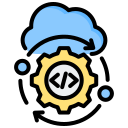MongoDB Training
MongoDB Training: Unlock the Power of NoSQL Databases
Welcome to Darsha Innovations, your trusted partner in mastering MongoDB! If you’re looking to enhance your database management skills and embark on a journey to become an expert in NoSQL databases, our MongoDB Training in Kallakurichi is the perfect opportunity for you.
This training is ideal for developers, database administrators, and IT professionals who want to build modern applications that require fast and scalable data storage. Throughout the course, participants will learn about MongoDB’s unique architecture, including its document-based structure, collections, and indexes. We will guide you through how MongoDB differs from traditional relational databases and how to use it to store, query, and manage large datasets.
Key topics covered in the MongoDB Training include:
- Introduction to NoSQL and MongoDB
- Setting up MongoDB and managing databases
- Data modeling and designing schemas
- CRUD (Create, Read, Update, Delete) operations
- Indexing and performance optimization
- Aggregation framework for advanced queries
- Data replication and sharding for scalability
- Backup, restore, and security practices
Our hands-on approach ensures that participants not only understand the theoretical aspects of MongoDB but also gain practical experience through real-world use cases and projects. With expert trainers, you’ll have access to in-depth guidance and best practices to implement MongoDB in your applications effectively.
By the end of the training, you’ll be equipped to leverage MongoDB’s powerful features for building robust, high-performance applications that can scale with ease. Whether you’re a beginner or have some experience with databases, this training will elevate your skills and help you stand out in the competitive tech landscape.
Why Choose Us?

Flexible Learning
Access training materials 24/7, learn at your own pace.

Comprehensive Curriculum
From basics to advanced MongoDB features.

Certification
Receive a certificate of completion to boost your career.
Our Training
Beginner Level
Ideal for those new to NoSQL databases. Learn the foundations of MongoDB and how to start building applications.
Intermediate Level
Expand your MongoDB knowledge and dive into advanced features, such as data replication and performance optimization.
Advanced Level
Master MongoDB with expert-level topics like multi-document transactions, data security, and MongoDB in the cloud.
What You Will Learn

Introduction to NoSQL
Learn the fundamentals of NoSQL databases and how they differ from relational databases.

MongoDB Basics
Understand MongoDB architecture, collections, documents, and CRUD operations.

Indexing Optimization
Learn data effectively for scalability how to create indexes and optimize queries for performance.

Real-World Projects
how they differ from relational databases.Build and deploy real-world MongoDB applications.
FAQs-MongoDB Training
MongoDB Training is a NoSQL database that provides high performance, high availability, and easy scalability. It stores data in flexible, JSON-like documents rather than traditional relational tables, making it suitable for handling large volumes of unstructured or semi-structured data.
While there are no strict prerequisites, a basic understanding of databases, programming, and web development would be beneficial. MongoDB Training Familiarity with JSON or other NoSQL databases can also be helpful but is not required.
Yes, MongoDB Training offers a certification exam called the MongoDB Certified Developer Associate Exam. This certification is ideal for those who want to validate their skills in MongoDB development.
The duration of MongoDB Training can vary depending on the format and intensity of the course. Most courses range from a few days to a couple of weeks if taken full-time. Self-paced online courses can take several weeks, depending on your schedule.
Yes, most MongoDB Training programs include practical, hands-on sessions. You will work with live MongoDB instances, execute queries, and practice database management tasks.

